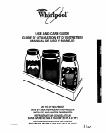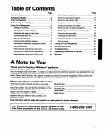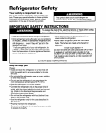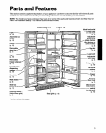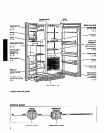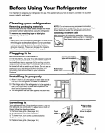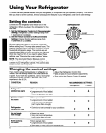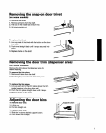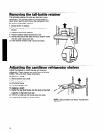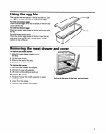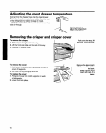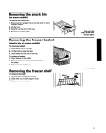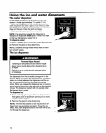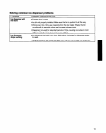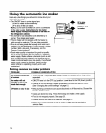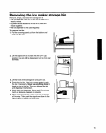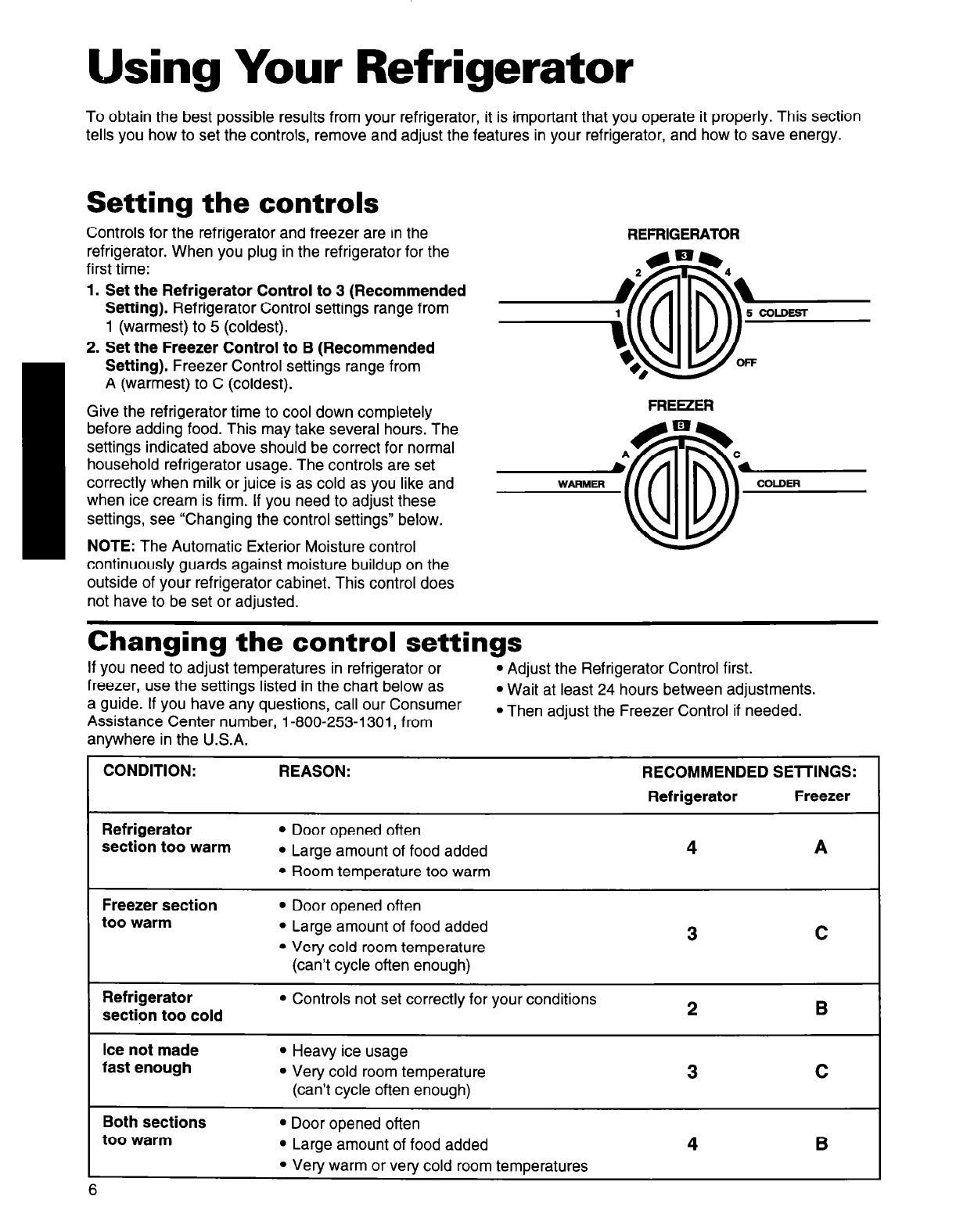
Using Your Refrigerator
To obtain the best possible results from your refrigerator, it is important that you operate it properly. This section
tells you how to set the controls, remove and adjust the features in your refrigerator, and how to save energy.
Setting the controls
Controls for the refrigerator and freezer are in the
refrigerator. When you plug in the refrigerator for the
first time:
1. Set the Refrigerator Control to 3 (Recommended
Setting).
Refrigerator Control settings range from
1 (warmest) to 5 (coldest).
2. Set the Freezer Control to B (Recommended
Setting).
Freezer Control settings range from
A (warmest) to C (coldest).
Give the refrigerator time to cool down completely
before adding food. This may take several hours. The
settings indicated above should be correct for normal
household refrigerator usage. The controls are set
correctly when milk or juice is as cold as you like and
when ice cream is firm. If you need to adjust these
settings, see “Changing the control settings” below.
NOTE:
The Automatic Exterior Moisture control
continuously guards against moisture buildup on the
outside of your refrigerator cabinet. This control does
not have to be set or adjusted.
REFRIGERATOR
FREDER
COLDER
Changing the control settings
If you need to adjust temperatures in refrigerator or
freezer, use the settings listed in the chart below as
a guide. If you have any questions, call our Consumer
Assistance Center number, 1-800-253-l 301, from
anywhere in the U.S.A.
l Adjust the Refrigerator Control first.
l Wait at least 24 hours between adjustments.
l Then adjust the Freezer Control if needed.
CONDITION:
Refrigerator
section too warm
REASON:
l Door opened often
l Large amount of food added
l Room temperature too warm
RECOMMENDED SETTINGS:
Refrigerator
Freezer
4
A
Freezer section
too warm
l Door opened often
l Large amount of food added
l Very cold room temperature
(can’t cycle often enough)
3
C
Refrigerator
sectipn too cold
Ice not made
fast enough
l Controls not set correctly for your conditions
l Heavy ice usage
l Very cold room temperature
(can’t cycle often enough)
2
B
3
C
Both sections
too warm
l Door opened often
l Large amount of food added
l Very warm or very cold room temperatures
6



